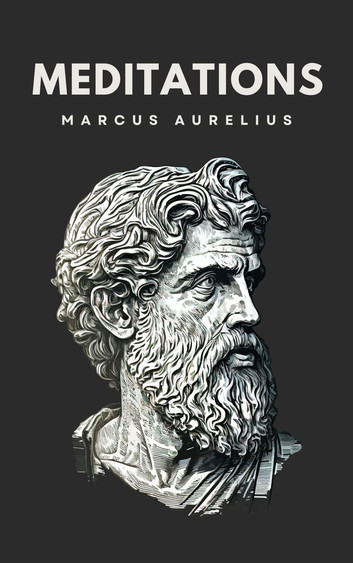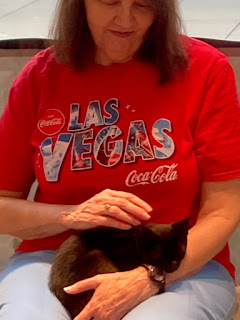By Thomas Kies
The first thing I write on the blackboard when I start teaching a creative writing class is “There Are No Rules”.
But in reality, there are…more or less. While waiting to meet someone for a meeting in a coffee shop (he was fifteen minutes late), I was scrolling on my phone like every other patron in that place, and I tripped over the Ten Commandments for writing detective stories. The rules were created by Ronald Knox in 1929. He was a British author and theologian, and he was a member of The Detection Club, a group of writers that included Agatha Christie and G.K. Chesterton
Let’s take a look at his rules and see which ones should be followed and which ones are a little dated. Some of them have been broken, often enough to have become their own tropes.
1- The criminal must be someone mentioned early on in the story.
This rule ensures fairness: the reader should have a chance to solve the mystery alongside the detective. No last-minute villains allowed
I agree with this, but I’ve read novels where the story was more character driven and the mystery was deep in the background. The bad guy wasn’t mentioned until the very end and there was no way the reader could have figured ‘whodunit’.
2. All supernatural or preternatural agencies are ruled out as a matter of course.
Mystery, not fantasy. The solution must be grounded in logic and reason, not ghosts or miracles.
There’s a whole genre of supernatural mysteries being written. Many of them have become bestsellers. I believe Stephen King has broken this rule once or twice.
3. Not more than one secret room or passage is allowable.
Secret passages were a popular trope in earlier Gothic fiction, but Knox believed overuse was lazy writing. One was permissible—barely.
I’m not crazy about secret rooms or passages. That being said, I had a secret tunnel in my third book, Graveyard Bay. But it was just the one. I swear.
4. No hitherto undiscovered poisons may be used, nor any appliance which will need a long scientific explanation at the end.
This was Knox’s way of banning deus ex machina solutions. The science should be believable and understandable to the reader.
I just broke this rule. I’ve written a dinner mystery for which our local community theater will soon be rehearsing, and I created a poison that will kill someone in exactly thirty minutes. That’s how much time the audience will have to figure out who in the dinner theater has the antidote.
5. No Chinaman must figure in the story.
Though offensive today, this rule was aimed at discouraging lazy reliance on xenophobic tropes. “The mysterious Oriental” had become a cliché in early 20th-century fiction, and Knox called it out.
I would hope we’ve all moved past this by now. Keep your ethnic biases to yourself. The early James Bond books and movies have some pretty heavy stereotypes that include both racism and sexism.
6. No accident must ever help the detective, nor must he ever have an unaccountable intuition which proves to be right.
Detectives should solve crimes using intellect and deduction, not luck or “a feeling.”
This rule is broken all the time now.
7. The detective must not himself commit the crime.
This rule was upended by later classics like The Murder of Roger Ackroyd by Agatha Christie, but Knox felt it violated the trust between reader and detective.
The unreliable narrator has become its own trope.
8. The detective must not light on any clues which are not instantly produced for the reader.
Again, fairness is key. The reader should see all the clues the detective sees, as soon as he sees them.
I’ve seen this rule broken multiple times very recently. I loved the limited series called Residence on Netflix. The detective Cordelia Cupp is delightful, but the most damning clues were withheld until the last episode. The audience had no chance to figure out whodunit before then.
9. The stupid friend of the detective, the Watson, must not conceal any thoughts which pass through his mind; his intelligence must be slightly, but very slightly, below that of the average reader.
The narrator, often a Watson-like figure, should be an honest but slightly naive companion—not a co-conspirator or red herring.
The sidekick must expose all of their conclusions, because they’re a mirror of ourselves. They ask the questions that we’re asking. This is a pretty good rule. If anyone out there has an exception to this rule, let me know.
10. Twin brothers, and doubles generally, must not appear unless we have been duly prepared for them.
Another safeguard against surprise cheats. The “evil twin” twist is only fair if readers had a fighting chance to suspect it.
And once again, this has become its own trope. Didn’t the second “Kives Out” film, “Glass Onion” have a surprise twin in it? True the twin was announced early on in the movie. Plus, this really feels like it’s been ripped out of a soap opera.
Knox wrote these rules to be tongue in cheek, and now they’re broken all the time. As I assure my students at the beginning of our creative writing class, there are no rules. But a mystery is a little like a written puzzle. The reader wants the chance to solve the puzzle—to catch the killer. It’s up to us, as writers, to lay down enough clues in the story where, at the end, the reader says, “Oh yeah…I should have seen that.”
The one rule I think we all agree on is: It should be a damned good story.
What rules do you have that you won’t break?




























